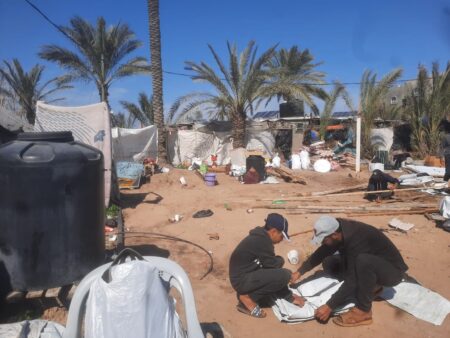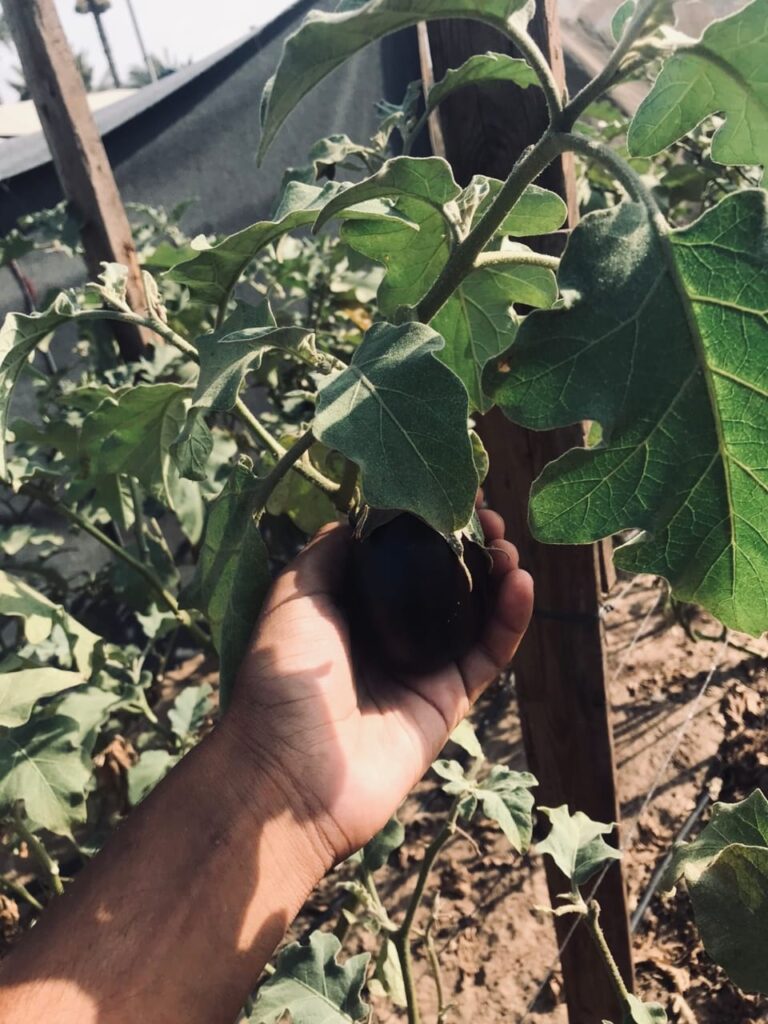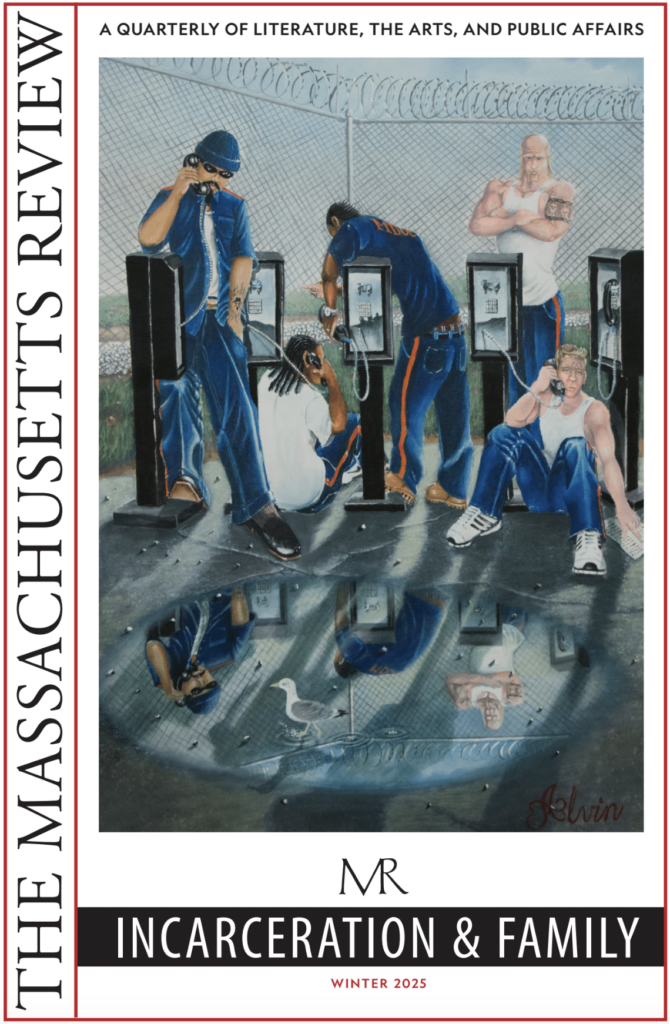Famine Turned Me Into a Farmer in Gaza

It’s 5:50 in the morning, just ten minutes before the university bus is supposed to arrive. I should be rushing to catch it and head to my classes in Gaza, just like I used to every day. But today, I’m trapped in a nightmare from which I can’t awake. The alarm ringing is the same one I used for university, yet my destination isn’t campus—it’s the farm.
Since the beginning of the war on Gaza, my greatest fear was being displaced from my home. And I was displaced—not just once, but more than five times. On January 18, after 468 days of the genocide, a ceasefire was declared. I returned to see my home for the first time in nine months, only to find it left in ruins, nothing but ashes. I didn’t recognize my street or even my city, Rafah. That was the worst moment of my life up until that point—it felt like the end for me and my family.
During that time, we had nowhere to go except to the home of one of my relatives, which was better than living in a tent for nine months. We stayed there in an area close to my home, where I would return daily trying to salvage some of my belongings. We began to rebuild ourselves, both mentally and physically, as much as we could. Life slowly started to return: markets opened, goods became available, people could meet without fear of bombing, and I could finally get some sleep without the constant sound of the drones.
I was eagerly waiting for the crossings to open so my younger siblings and I could travel abroad and pursue the dream of continuing our studies. Like hundreds of thousands of other students in Gaza, we had been left with no access to education for over two years.
But in mid-March 2025, just two months after the ceasefire was first announced, the genocide resumed with even greater brutality, ending the temporary ceasefire. Intense bombing and continuous shelling resumed, along with displacement and killings far worse than before. I was forced to evacuate for the sixth time.
We returned to the same tent where we had lived for more than nine months, on the same land, in the same place, with the same pain and disconnection from life, on Abu Shadi’s land. It was like a closed circle that always brought us back to the starting point — the same faces, the same stories, but with greater pain.
Since the war resumed, there is no safe area left in Gaza. The occupation’s bombing occurs everywhere and at any time, and with the crossings closed, famine is spreading across people’s homes and tents. At the end of May, the arrival of American aid through the Israeli-backed Gaza Humanitarian Foundation (GHF) was announced, after more than two months of crossing closures, shortages of goods, and rising prices. It was presented as aid for the people, but in reality, it was a death trap. Not a day goes by without dozens of deaths and injuries during aid distribution. Chaos has spread throughout the Gaza Strip, and prices have reached their highest levels yet.
As the situation worsens and resources grow ever more scarce, we have had to find new ways to survive. For months, we had to live on alternatives due to the shortage of supplies and high prices. Natural sugar became a luxury after its price exceeded $100 per kilogram, so families relied on alternative sugar despite its risks to children and those with chronic illnesses. The same applied to flour, which was replaced by pasta or lentils, and coffee, which was substituted with ground chickpeas. We no longer eat for enjoyment, but because we don’t want to die of starvation.
With cash becoming almost impossible to access, people have turned to bartering as a means to meet their basic needs. I offered a small electric scale on one of the online barter pages in exchange for some flour or rice, so I could feed my family even as the markets remained closed. But despite all efforts, the harsh reality of the genocide continues to weigh heavily on us.
By July, there wasn’t even a piece of bread in the tent, and cash liquidity barely allowed me to withdraw half the amount I would have needed to buy it. In my pocket and bank account, I had only 200 shekels, the last of what I owned. I went to one of the cash sellers and withdrew 100 shekels in cash. That morning, I decided to go to the GHF center after it opened, hoping to buy something from people there to satisfy my family’s hunger.
But when I arrived at 11 a.m., under the scorching sun, having eaten nothing since the night before except some water and lentil soup, I felt dizzy and collapsed to the ground. I came to minutes later when people were sprinkling water on my face to wake me up.
I checked my pocket and found that the 100 shekels had been stolen. That moment was harder than all of my displacements and the bombing of my home. I realized that famine was much harsher than anything I had experienced before then. I didn’t know how I could go back to my family empty-handed, and I was on the brink of despair. Every single thing in my life felt unbearable.
As I was returning to our tent in the al-Mawasi camp, in Khan Younis, with tearful eyes and a heart burning with frustration, I saw Abu Shadi working in his field, tending to tomatoes I couldn’t afford to buy from the market, where the price has exceeded $30 per kilogram. An idea struck me to help him with the harvest in exchange for some vegetables.
I went to him, not knowing how to start the conversation. He knew me, and when I offered my help, he asked, “What do you want in return?” He thought I was asking for money, but I said, “I just want some vegetables enough for me and my family.” He agreed and asked me to start the next day, from dawn until noon, working with him and his children.
I returned to the tent empty-handed that day and told my mother what had happened. In the evening, we drank only water, as there wasn’t even soup. I placed my phone beside me and set the alarm for five in the morning. I fell asleep from complete exhaustion.
When the alarm rang, it was the old university alarm. I didn’t turn it off immediately; I wanted to dream a little about my past life: my university, the bus, the cafeteria, the chatter of my friends in the hall, and my dreams that had slipped away.
“Hassan, wake up! The alarm is ringing!” Suddenly, Mohammed called out to me and awoke me.
I stirred at the sound of his voice, only to realize that it had all really been a dream, and I was back inside a nightmare from which I could not awaken.
Today I rise to go to the farm, work long hours, and then carry home some produce to feed my family, fleeing from the beast of famine that has exhausted our souls and consumed our bodies. This wasn’t a path I chose—it was a reality forced on me.

HASSAN HERZALLAH is a Gaza-based translation student and journalistic writer. In his third year studying English translation at the Islamic University of Gaza, he continues his education online after his university was bombed. He is a contributor for Mondoweiss and other international outlets, documenting life under siege and displacement.



